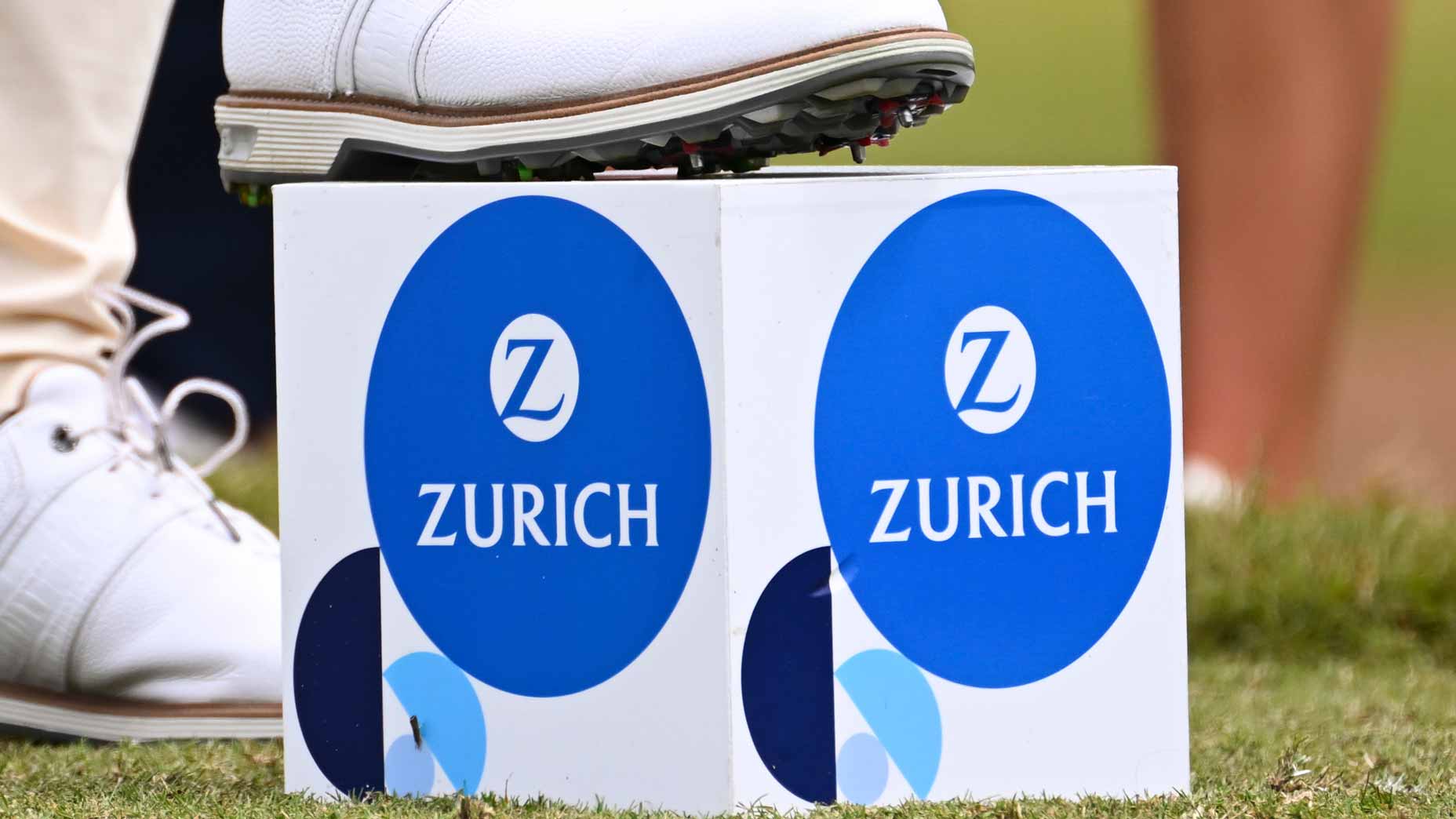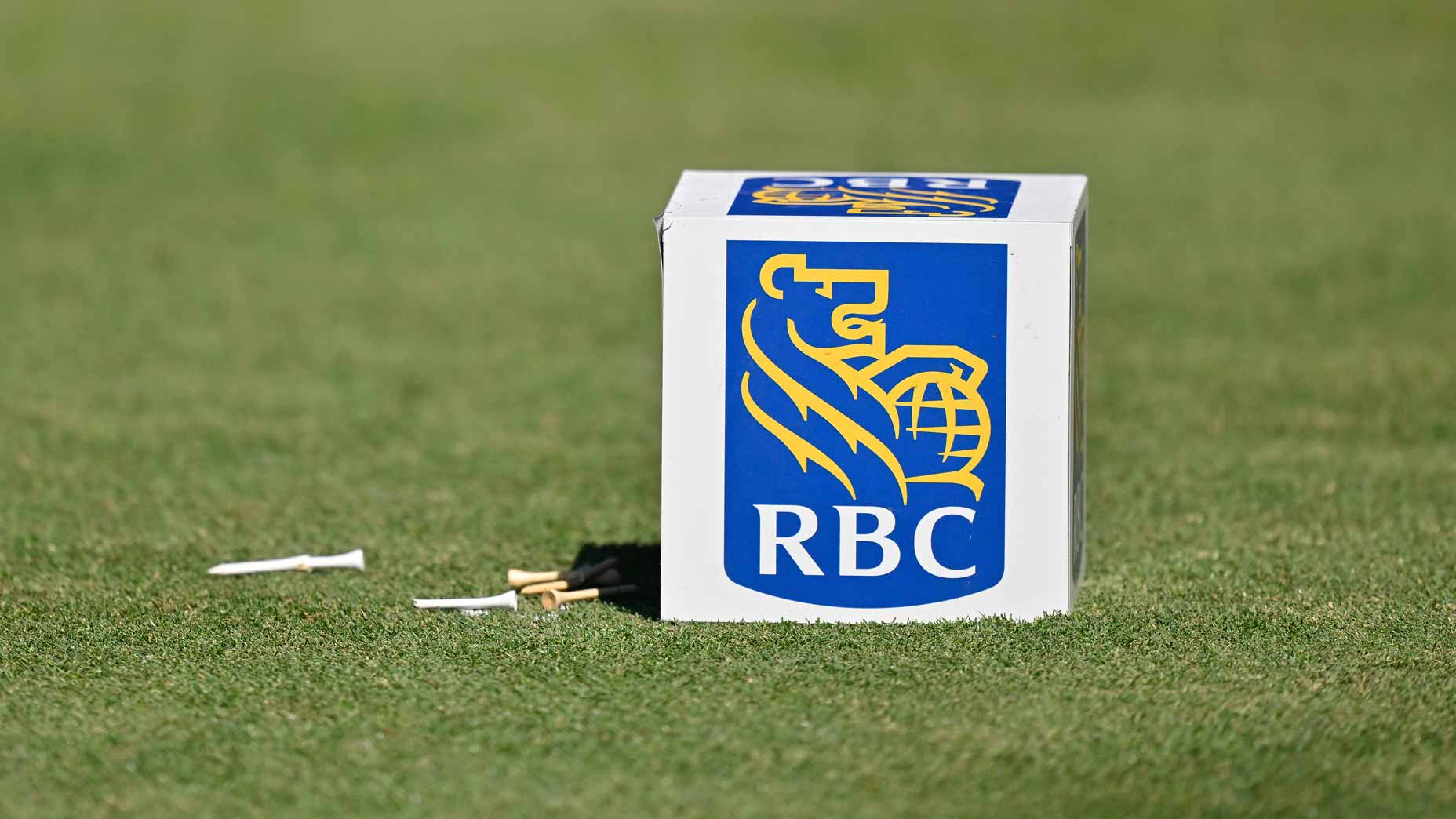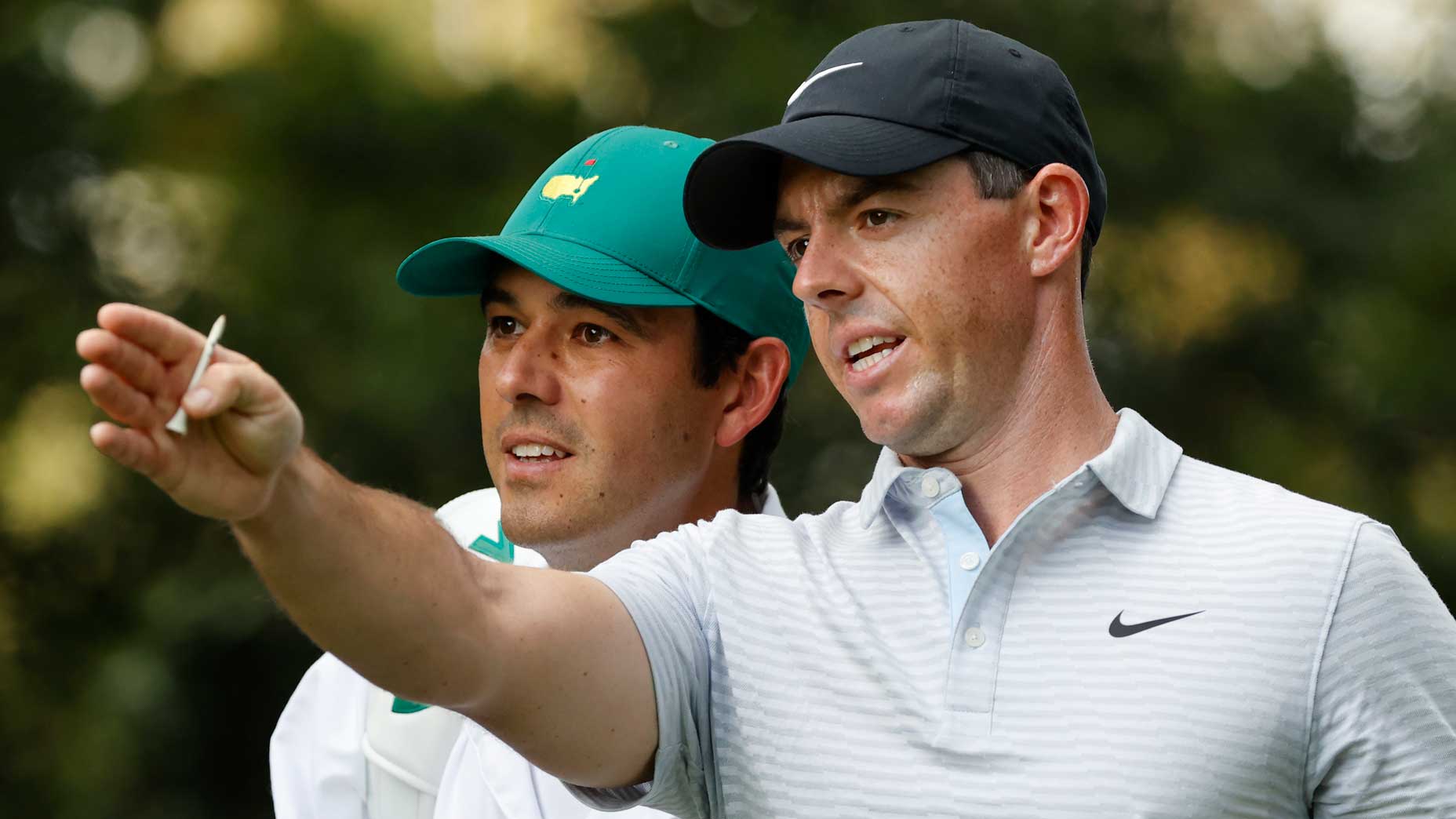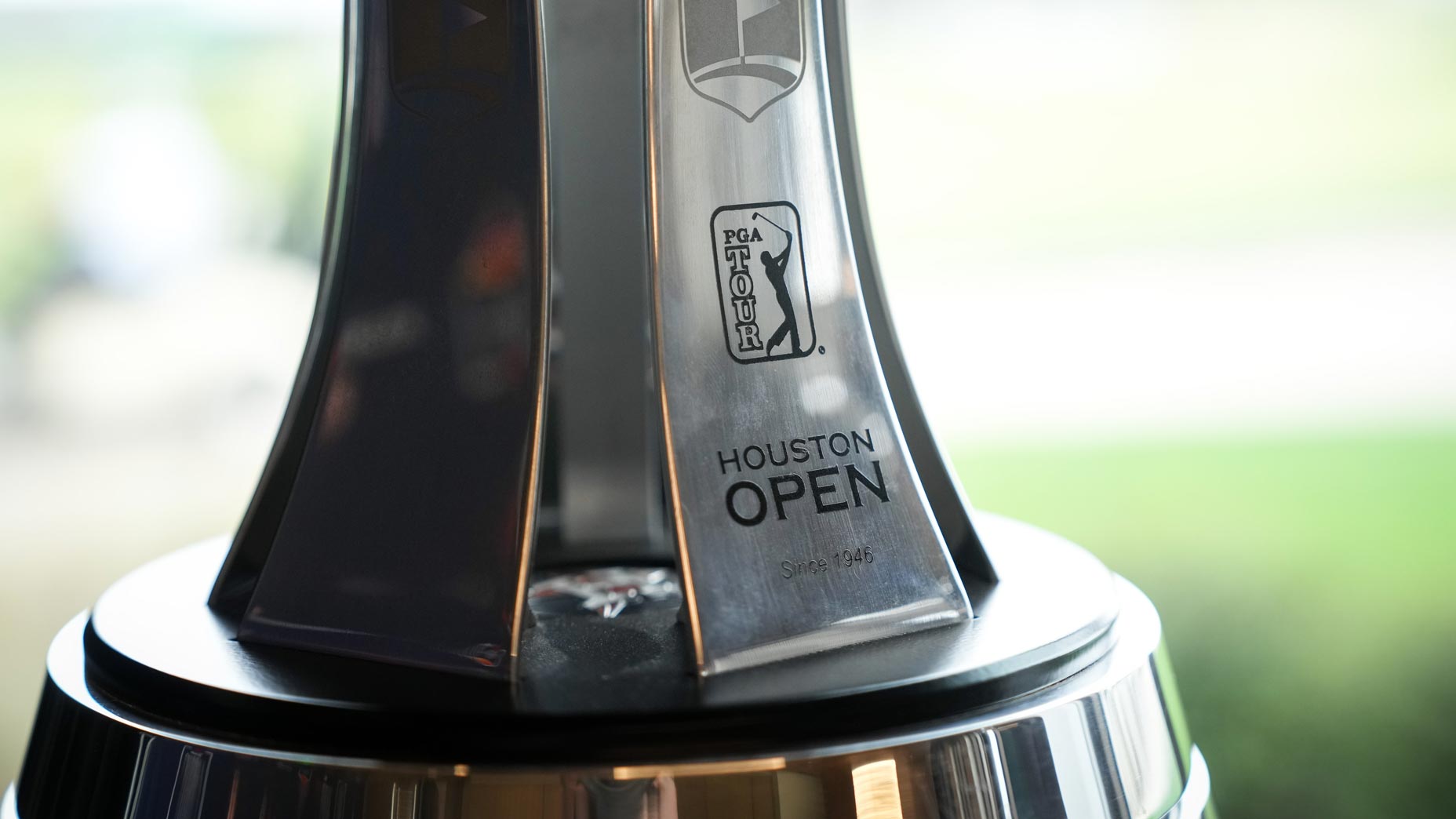Every Sunday night, GOLF.com conducts an e-mail roundtable with writers from Sports Illustrated and GOLF Magazine. Check in every week for the unfiltered opinions of our writers and editors and join the conversation by tweeting us @golf_com.
1. Jordan Spieth holed out from the bunker on the first playoff hole to beat Daniel Berger and win the Travelers Championship on Sunday, claiming his 10th career PGA Tour victory. In the modern era, only Tiger has won at least 10 times before turning 24. Spieth turns 24 next month. Has Woods’s dominance unintentionally forced us to overlook, and perhaps underappreciate, some of the things Spieth has accomplished in his young career?
Sean Zak, associate editor, GOLF (@Sean_Zak): There’s no question we overlook Spieth’s consistency more than anything, which has been elite since Day 1. I half wish he would have eased into his career without so much success right away. He’s never really struggled for a four- or five-event stretch like many young pros will do during that first slump. While Tiger originally set the unfair standard for victories, Spieth set a consistency standard for himself that is also very impressive, and as a consequence we tend to freak out at consecutive missed cuts.
Josh Sens, contributing writer, GOLF (@JoshSens): Jordan Spieth is a remarkably accomplished golfer for his age. Check that. For any age. But underappreciated? He has earned enough money for many lifetimes; gets bucket-loads of media attention throughout the season; has sponsors fawning over him left and right; is greeted like a demi-god at almost every green he approaches. If only we were all fortunate enough to be so woefully underappreciated.
Jeff Ritter, digital development editor, Sports Illustrated Golf Group (@Jeff_Ritter): Tiger absolutely shattered the scale by which all current Tour careers are measured. Spieth may not be on a Tiger-like winning pace, but as I learned today on Twitter, his career arc so far is Mickelsonian. And Phil never had a 73rd-hole celebration like Jordan on Sunday. Not too shabby.
Michael Bamberger, senior writer, Sports Illustrated: Tiger’s personality added to his career to create an aura of Worldwide Golfing Dominance. Plus, Tiger won with a power game. It just looked more dominating. But 10 is 10—incredible, really.

2. So long, Phil and Bones. After 25 years perhaps the most famous player-caddie duo ever mutually announced they’re splitting up. Three questions: (1) Might Phil’s game suffer without his loyal sidekick on the bag? (2) Will we see Bones on another bag by the 2018 Masters? (3) Which golfer would most benefit from Bones’s services?
Zak: 1) If Tim Mickelson lets Phil pull driver without at the least a conversation, then yes, I think his game could suffer there. (He’s just so wild off the tee!) Bones is/was great, but Tim will give Phil everything he needs. 2) I sure hope so. I’m actually more interested to see how Bones fares away from Phil than how Phil fares away from Bones. 3) As Michael Bamberger pointed out well in his obit for the Phil/Bones business relationship, Bones played more than a tend-the-flag-and-rake-the-bunkers role. I’d like to see him step in along a promising but not-quite-where-they-could-be player. Someone like Charles Howell III.
Sens: 1) If anything, I expect we’ll see a bump in the quality of Phil’s play. Not because of anything Bones was doing wrong but because change can often have that effect, like when a baseball team swaps managers and suddenly goes on a winning streak. The credit in those cases usually lies less with the actual personnel than simply the electricity of the new. Players often acknowledge that on Tour as well. They make a change because, well, they want a change. 2) I would guess yes but have no special insight into that other than to know that Bones lives and breathes the game, so it’s hard to imagine him staying away from it. 3) So much has been made over the years of the cerebral and chatty rapport Phil and Bones developed over the years. Clearly it worked. But like any good caddie, I’m sure Bones could adapt to the playing style and personality of any number of pros. As Sean says, though, it would be interesting to see him get on the bag of a precocious talent and see what kind of impact he could have.
Ritter: I agree that Phil might get an initial bump with a new face on the bag. There’s a reason he wants his brother with him—why wouldn’t it pay dividends, at least initially? I have no insight as to what Bones might do next, but he’s a proven commodity and I’d guess he’ll have work next year at Augusta if he wants it. But at this stage of his life, would he want to join a young Tour grinder and hit the road 25 weeks a year? I see him pairing with someone laid back with a limited schedule that includes the occasional major. Fred Couples springs to mind.
Bamberger: I don’t think a change in scenery is going to do anything to help Phil drive it in play more often, make more putts from 10 feet and in or concentrate for 72 holes, which I would say are his bugaboos right now. If any top player is looking to make a change, and that player wants to talk out his options before pulling the trigger, he (or she!) is going to call Bones or LaCava. Top players don’t switch caddies all that often, but, yes, I think Bones will be on a new bag long before next year’s Masters. My brother has been predicting lately that Hideki is ready to take over the new golf order. I fear if he does he still won’t get the attention he deserves. Bones would help there.

3. We lied: four questions. What’s your favorite Mickelson-Mackay memory or story?
Zak: Any story that involves Bones’ yearly veto is a worthy answer here. (Courtesy of Phil’s podcast discussion with Alan Shipnuck), I love the story of Phil trying to hit a 6-iron from a dreadful fairway bunker at Muirfield. Bones declares he would like to use his veto, only to have Phil deny the motion, saying the veto is only good in the continental United States. Of course, Phil ends up making double bogey and the entire story (of which there’s more detail, I’m sure) paints a vivid picture of how those two got Phil’s ball around the course for 25 years.
Sens: I’m sure this happened countless times, but I remember one Homeric exchange they had on the tee of the par-3 16th at Riviera—an endless back and forth about whether Phil should hit a rounded hook or a sweeping hook or a Pelz or something, and whether the wind would move the ball X or Y number of feet and how the ball would move once it landed and yada yada. It went on and on to the point of unintentional parody, and I suspect a lot of people who heard it were thinking, Good lord, talk about paralysis by analysis. And then Mickelson stuck it to like four feet.
Bamberger: You wouldn’t call this a story, but I love that Bones often flew Southwest home even when Phil was offering him a lift. Caddie and player should only spend so much time together. Maybe that’s why they were able to go 25 years.
Ritter: Anytime Phil asked Bones to tend the flag when he was still a wedge shot away. It may have happened multiple times beforehand, but the first time I remember this trick was at the final round of the 2011 Farmers Insurance Open, when Phil needed to hole out from 70 yards to force a playoff. I love everything about this.
4. The PGA Tour announced that beginning next season blood testing will now be administered along with urine testing to detect HGH. On top of that, the Tour will also make public player fines and suspensions, even for recreational drugs. What do you suspect triggered these policy shifts? And is there reason not to like these changes?
Zak: I can’t think of a more obvious trigger than international golf star Rory McIlroy saying “I could use HGH and get away with it,” last year at the British Open. Rory’s one of the two most important golfers on the planet right now, and because of this, it seems his voice carries plenty of weight. I also can’t think of a reason to dislike the changes. If it leads to a cleaner game or—if nothing else—the perception of a cleaner game, it can only be a positive.
Sens: Rory’s word definitely carries weight. But golf’s return to the Olympics also had an impact. The Tour’s Andy Levinson said as much—that they saw how the tests were administered and were encouraged to see that tests didn’t throw the players off. Testing makes good sense. I don’t see a downside. It also makes good optics, and everybody loves good optics, right?
Ritter: I love good optics, Josh. This was a no-brainer and long overdue. The media has clamored for it, but as already mentioned, I think the voice of the Tour pros got it to the finish line.
Bamberger: The Olympics had to have forced the Tour’s hand, but also Jay Monahan may simply have a different approach and philosophy than Finchem. It doesn’t work, not to announce suspensions, because it just muddles things for fans and sponsors and reporters and encourages an environment of gross misrepresentations, as when Dustin Johnson failed a third drug test in 2014 (not that the Tour ever said anything about that) and claimed that he was taking his own leave of absence from the PGA Championship and the Ryder Cup that year. I don’t know anybody who believed that. So this is welcome. It should go beyond drugs. If somebody is banned for other types of conduct that is unbecoming of the gents, that should be announced, too. Gambling in sports, including golf, will likely become far more common in the coming years. We will need to know that the players are giving it their best effort. Suspensions for consorting with gamblers, or other issues related to gambling, should be announced as well. It’s also an excellent deterrent.

5. Former Tour pro Omar Uresti won the PGA Professional Championship to earn one of the 20 exemptions into August’s PGA Championship (and also picked up a $50,00 winner’s check and six PGA Tour exemptions in the next year). But several PGA of America teaching pros were irked by Uresti’s win. The 48-year-old PGA Life Member has won roughly $4.5 million in his career that spans more than 500 professional starts, including 356 on the PGA Tour. Are these sour grapes warranted and, if so, is it time to change the qualifying format to make it more fair for the rank-and-file club pros?
Zak: Yes, the sour grapes are warranted, and yes, it’s time to change the qualifying format. When you hear “PGA Professional,” you think of the people opening the golf shop, fitting that shop with merchandise, knowing the names (and swing thoughts) of every member, etc. That’s not Uresti, though his qualification came through no fault of his own (he played by the rules). I just wonder why this arises as an issue just because he WON the PGA PNC. This will be his third straight PGA Championship, so why the fuss now and not earlier? Also, if we’re set out to change things, the PGA of America should decrease the number of qualifiers. Since 2000, zero of the 180 clubs pros to tee it up at the PGA Championship have finished in the top 30.
Sens: It’s yet another example of how the game itself continues to change faster than the rules and policies surrounding it. Like what happened with the U.S. Amateur Public Links, which was scratched after it became clear that it had evolved into something that it wasn’t meant to be.
Ritter: If the PGA doesn’t like it, the PGA should change its own rule.
Bamberger: I really don’t know much about the qualifying requirements, but it wasn’t like Omar sneaked his way into the field. He must have met the criteria, and there he is, with a ticket to Charlotte in August. Enjoy. Congrats.
6. Former USGA president Frank “Sandy” Tatum died Thursday at age 96. Tatum, who was a part of the USGA’s executive committee from 1972-80 (and president from 1978-79), famously said of the 1974 U.S. Open dubbed The Massacre at Winged Foot: “Our objective is not to humiliate the best players in the world; we’re trying to identify them.” What will be Tatum’s lasting legacy to the game?
Sens: For a more complete answer, read Michael Bamberger’s tribute to Tatum, which ran on GOLF.com this week. For a shorter answer, I’ll go with Tatum’s commitment to broadening golf’s reach. I profiled him years ago for a magazine out here in the Bay Area, back when he was pushing for the redo of long-neglected Harding Park. At the time, he’d become a lightning rod for criticism from anyone in the San Francisco area who had a gripe about golf (and that was a lot of people). Tatum was firm but gracious and open-minded in the face of that criticism. Yes. It’s true that out-of-towners now pay significantly more to play the course. But local residents now have a world-class municipal course that they can play for a reasonable rate. They owe that to Tatum. He was as blue blood and privileged as they come, but you didn’t have to speak with him for more than a minute to see how genuinely committed he was to bringing more people into the game.
Bamberger: Thanks for that, Josh. Tatum was, I’m afraid, the end of the era, the USGA committeeman as a noble authority figure in the game. Now the authority figures in the game all carry thick checkbooks. Tatum’s power stemmed from his unabiding love and understanding of the game.






